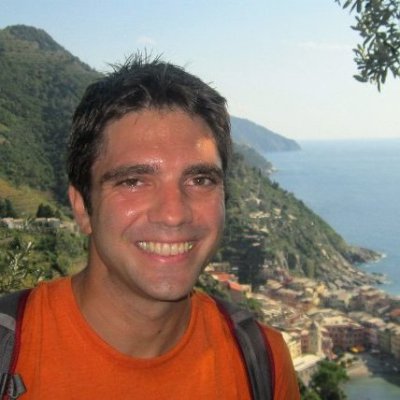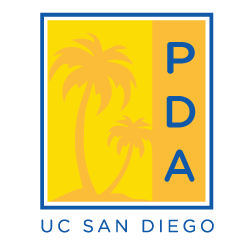
Milos Lazic, Ph.D.
Scientist II | Jecure Therapeutics

- Interview Overview
Interview Overview
Interview and editing by: Alexandra Bortnick
Interview: July 2017
Transition: August 2014
1. Please list your previous department at UC San Diego and provide a brief description of the research you conducted?
I worked under the tutelage of Ariel Feldstein, MD in the Department of Pediatrics. Our lab's main focus is liver disease, especially tackling Non Alcoholic Steatohepatitis (NASH), which is a very hot topic in biotech and pharma. My projects revolved around this liver and metabolic syndrome, and I published on projects related to: the protection mechanism in acute liver inflammation; biomarkers of adipocyte stress in obesity; and the metabolic and anti-inflammatory benefits of Omega-3 fat rich diets. Overall, Ariel allowed me to work on both safe-to-publish and high-impact projects, and facilitated my bringing new collaborative projects to the lab.
2. Please describe your current job profile?
I am a scientist at a biopharma startup company and was hired as the first employee about a year ago. Startups require fast resolution of challenges, learning new skills (as fast and as accurately as possible), and staying flexible and expanding your role to adjust to the company's evolving directions. While I still spend the majority of my effort on science -- developing new assays, running compound screens, analyzing and presenting data, and scouting literature for new potential targets -- I also spend a significant amount of time managing in vivo efficacy studies with CROs (study director role), as well as creating relationships with vendors and other partnering companies.
3. What made you decide to transition into your current position?
Opportunity to be the first employee in a well-funded startup; high respect and trust in the co-founders and our management team; competitive offer and opportunity; working in the area that matched my postdoc experience; confidence that I could contribute and drive the company forward.
4. Apart from the research you conducted, do you feel like anything in particular has helped you to acquire your current position?
The main reason why I was asked to join Jecure was because the biological co-founder of the company was my postdoc mentor, Ariel Feldstein. Also, I was open and flexible about career options and accepted risk. I was resourceful and networked more than the average postdoc and was very good at working with Ariel's team. I worked hard as a postdoc, did solid research, met high ethical standards in experimental conduct and data analyses, and most importantly, maintained a good relationship with my mentor. The choice of lab for postdocs is crucial. I knew that Ariel was open to industry collaborations and potentially starting a company on his own when I joined the lab; therefore, I recommend anyone who is more industry- or startup-driven to select a PI (or collaborate with a PI) that either works with industry or runs/sits on company board(s). VERY IMPORTANT FOR INTERNATIONAL POSTDOCS (almost forgot): apply and obtain your green card while postdocing if you are serious about staying in the States and finding a job in industry!
5. Please list some of the most striking similarities and differences between your post-doc and current position?
The most striking similarity is the amount of freedom I have to adjust my work schedule to my lifestyle in a relatively informal environment (fewer pre-defined expectations and formalities than big pharma). Also, depending on the management team, startups usually have fewer meetings and less inside politics than big pharma. However, overall, there are more differences than similarities between my startup and academic experiences. The main difference is focus; everyone has to stay on task and meet deadlines. The aim of a startup is to develop IP, file IND (Investigational New Drug) and move high potential compounds to Phase I clinical trials rather than publish another paper. Stakes and motivations are amplified, being shareholders in a growing company. The science itself is more robust in terms of optimizing assays and trusting your data. It's not enough to replicate experiments three times; we repeat experiments 1000 times with the same outcome! Finally, my time is more limited. I have less time to read and learn compared to my postdoc days. Use your time wisely to learn as much as possible!
6. Is there any specific challenge (during the entire process of transitioning) that you would like to highlight and if so how did you overcome it?
The biggest challenge (even for more experienced industry professionals) is time management. Decision-making and prioritizing become very valuable, so practice those skills. Also, the pace and direction of research may change rapidly, so one has to stay flexible and prepared to feel uncomfortable. One thing I can recommend to postdocs is to be very proactive when they feel that their project is hitting a dead-end. Persuade and negotiate with your PI to get on another project that is more meaningful and rewarding to you rather than sticking with a project that's going nowhere.
7. Please describe your goals and ambitions for the next 5 years?
I still don't know what I want to be when I grow up. I like startups and entrepreneurship and entertain myself with the idea of being a co-founder one day. I love my current position, but I am leaning towards management and business roles in biotech industry down the line.
8. What do you feel you could have done more, as a postdoc, to help prepare you for or acquire your current position?
I always felt industry would fit me better than academia in terms of creating products rather than publications. As a postdoc, I sought various experiences outside of research (I am the co-founder of the EIP program and volunteered with the PDA), which helped me discover various opportunities for PhDs outside of academia and empowered me to seek out new job opportunities. Reseachers can always read and learn more about their field and about industry as a whole. I recommend following the news on websites such as fiercebiotech and endpoint news.
9. What do you feel is the most important advice you can give to a current UCSD postdoc in order for them to obtain a position such as yours?
Select your lab wisely (or your collaborator's lab); learn about your field and impress someone with your knowledge; network network network; do things outside of research that improve your communication, marketing and team-coordination/team-leadership skills, and do not be afraid to accept positions or new career opportunities that are not a perfect fit for you at first!
